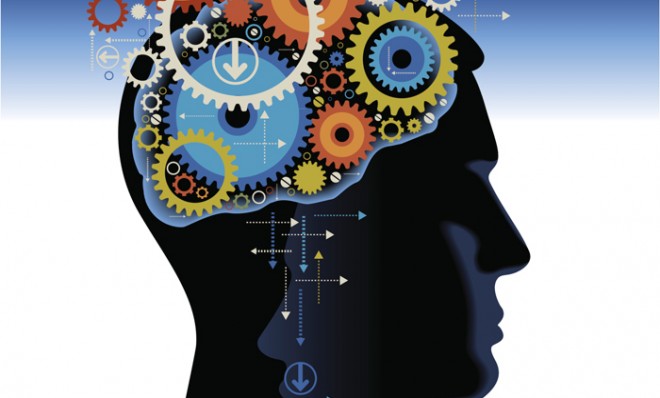Smart people are just as racist as everyone else
They just aren't quite so vocal about it, according to one new study


A free daily email with the biggest news stories of the day – and the best features from TheWeek.com
You are now subscribed
Your newsletter sign-up was successful
Despite what they may claim, geniuses are no less likely than their denser peers to be racist, according to a new study from the University of Michigan.
While intelligent white Americans were more likely to support the ideals of racial tolerance, their subsequent responses to specific, race-based policies did not bear out those claims, the study found.
"High-ability whites are less likely to report prejudiced attitudes and more likely to say they support racial integration in principle," said Geoffrey Wodtke, a doctoral candidate in sociology at Michigan and the study's author. "But they are no more likely than lower-ability whites to support open housing laws and are less likely to support school bussing and affirmative action programs."
The Week
Escape your echo chamber. Get the facts behind the news, plus analysis from multiple perspectives.

Sign up for The Week's Free Newsletters
From our morning news briefing to a weekly Good News Newsletter, get the best of The Week delivered directly to your inbox.
From our morning news briefing to a weekly Good News Newsletter, get the best of The Week delivered directly to your inbox.
Of course, bussing and affirmative action programs lie at the center of a heated debate over the government's approach to reducing racial inequality. The Supreme Court, spearheaded by a conservative majority, in 2007 struck down a school integration effort in Washington, while making it clear that affirmative action at the university level is in peril. Conservatives would hardly think their opposition to such policies constituted racism — indeed, many say the policies themselves are racist.
Still, the latest finding may seem counterintuitive. Smarter people, we assume, should have better critical thinking skills and therefore be more apt to view racism as irrational on its face. And indeed, past studies have drawn a link between lower I.Q. scores and prejudicial beliefs.
Wodtke arrived at his conclusion after reviewing the responses of 20,000 whites in the latest General Social Survey. Respondents who fared better on questions gauging cognitive ability, he found, were more likely to express favorable attitudes toward African-Americans. At the same time, however, they were no more likely than others — and in some cases, even less likely — to endorse policies aimed at ameliorating segregation and discrimination.
That, Wodtke said, meant that smarter people were not actually more tolerant in practice than anyone else — they just knew they shouldn't come right out and say so.
A free daily email with the biggest news stories of the day – and the best features from TheWeek.com
Here's Wodtke:
More intelligent members of the dominant group are just better at legitimizing and protecting their privileged position than less intelligent members. In modern America, where blacks are mobilized to challenge racial inequality, this means that intelligent whites say — and may in fact truly believe — all the right things about racial equality in principle, but they just don't actually do anything that would eliminate the privileges to which they have become accustomed.
In many cases, they have become so accustomed to these privileges that they become 'invisible,' and any effort to point these privileges out or to eliminate them strikes intelligent whites as a grave injustice. [University of Michigan]
Perhaps a better indicator than intelligence of racial tolerance is educational upbringing. A United Nations study released in June linked access to a quality education to a lower likelihood of racist or xenophobic tendencies. That's because education, the study said, plays a "central role in creating new values and attitudes and provides us with important tools for addressing deep-rooted discrimination."
Jon Terbush is an associate editor at TheWeek.com covering politics, sports, and other things he finds interesting. He has previously written for Talking Points Memo, Raw Story, and Business Insider.
-
 Will increasing tensions with Iran boil over into war?
Will increasing tensions with Iran boil over into war?Today’s Big Question President Donald Trump has recently been threatening the country
-
 Corruption: The spy sheikh and the president
Corruption: The spy sheikh and the presidentFeature Trump is at the center of another scandal
-
 Putin’s shadow war
Putin’s shadow warFeature The Kremlin is waging a campaign of sabotage and subversion against Ukraine’s allies in the West
